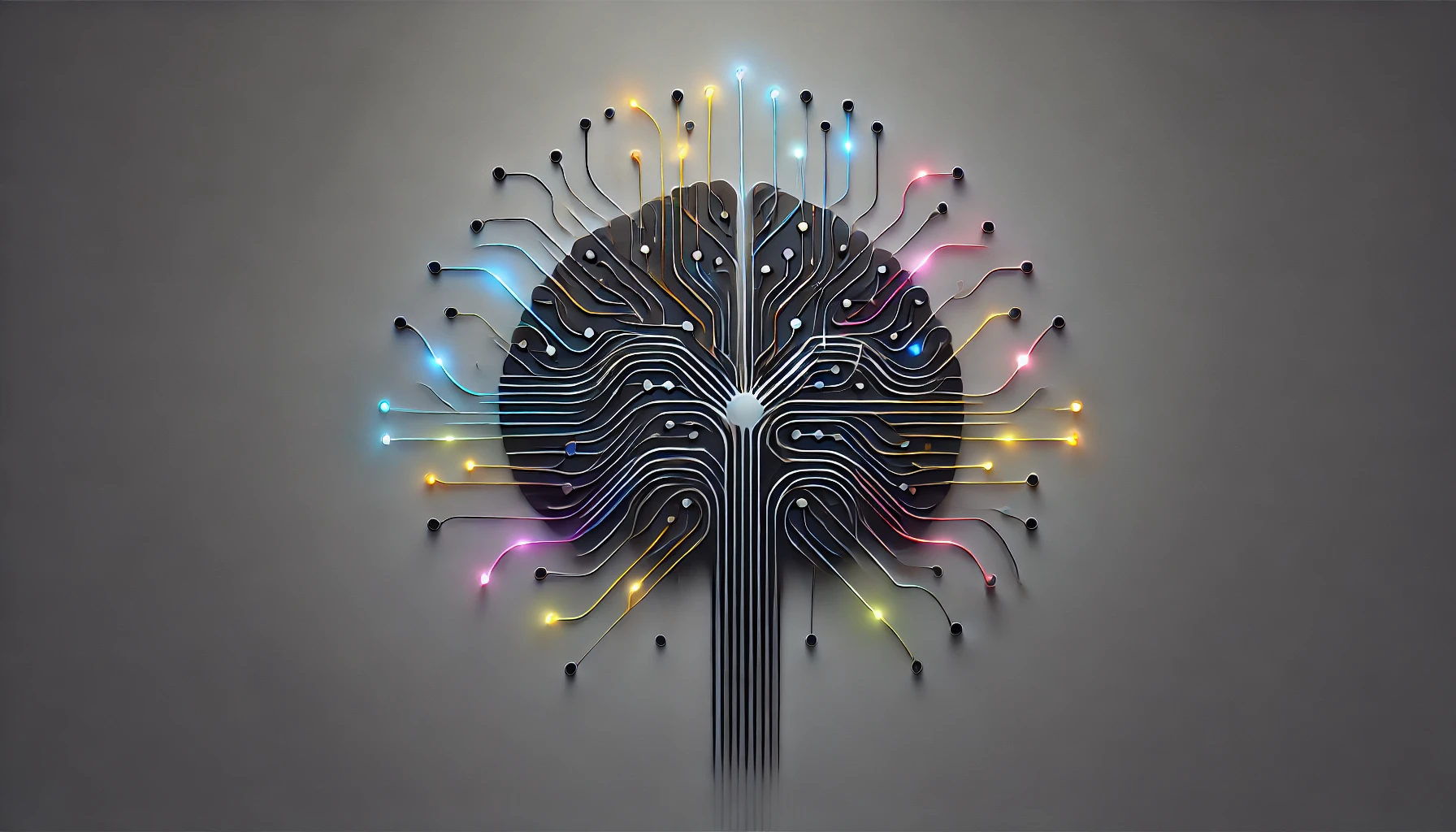Move over, swiping right—there’s a new kind of relationship in town, and it’s not exactly...human. Welcome to the wild, electrifying world of AI girlfriends—virtual companions meticulously designed to engage, amuse, and yes, maybe even love you. These digital darlings are not just chatbots—they’re a glimpse into a future where love, loneliness, and technology collide in strange and surreal ways. And whether you find them empowering, hilarious, or downright creepy, one thing’s for sure: AI girlfriends are here to stay.
Imagine your perfect partner. They’re attentive, witty, always available, and never leave dirty socks on the floor. Now, imagine they don’t exist in the physical world. Welcome to the future, where romance meets algorithms.
What are AI Girlfriends?
AI girlfriends are digital companions designed to provide emotional support, entertainment, or even simulated romance. Powered by artificial intelligence, these virtual partners interact with users in real-time, mimicking human conversation and behavior. Whether it’s witty banter, emotional validation, or even a flirty text, these AI partners are programmed to meet the user’s emotional and psychological needs.
The platforms behind these companions vary widely in complexity. Some, like FunFun.ai, offer lighthearted interaction with playful AI partners, while others, like Nomi.ai, focus on deeper emotional connections. While the AI can't replicate physical affection, it fills other gaps in human relationships—particularly for those seeking companionship without real-world complications.
From Chat to Commitment: How AI Girlfriends Work
AI companions like Candy.AI and Anima are rewriting the dating playbook. Unlike Tinder matches, these virtual girlfriends never ghost you. No awkward conversations, no worrying about what they really mean by "we need to talk." AI partners come with pre-programmed personalities that evolve the more you interact, adapting to your quirks and preferences. And the cherry on top? Many platforms let you customize every aspect of your virtual partner, from looks to personality traits, as easily as you’d select toppings for your pizza.

With platforms like HeraHaven, users can even tailor personalities with unique quirks and preferences. Feel like your girlfriend should adore astrophysics and spontaneous poetry readings? No problem. Want her to text good morning every day at 8:00 AM sharp? Done. These digital love interests promise companionship without complications—at least on paper.
Is It Healthy to Have an AI Girlfriend?
This is the million-dollar question. The short answer is—it depends. For some, an AI girlfriend can serve as an emotional crutch or even an outlet during difficult times, offering companionship when human relationships feel too complicated or inaccessible. But psychologists have warned that relying on virtual partners may prevent individuals from addressing the root causes of their social isolation. In a world where many already struggle with loneliness, AI relationships can either be a bridge to human connection—or a dangerous substitute.
It’s a slippery slope. Platforms like Nomi.ai, which offer AI companions with memory and "soul-like" depth, blur the line between helpful and harmful. Used wisely, these relationships can help people build social confidence. But unchecked, they may encourage emotional dependency, delaying or replacing real-world interactions. So, like any relationship, it’s about balance—and knowing when to step away from the screen.
Who is the Most Realistic AI Girlfriend?
According to many users, some of the most realistic AI companions come from platforms like Romantic AI and Anima. These platforms specialize in nuanced conversation and emotional engagement, mimicking the spontaneity and quirks of human partners. HeraHaven takes things a step further, allowing users to mix and match appearances, personalities, and behaviors.
These platforms are powered by cutting-edge large language models (LLMs) that help the AI "understand" and respond to context. It’s worth noting, though, that the "realism" of these AI companions can vary from person to person. Some users swear they forget they’re talking to an AI, while others find the interaction uncanny. Realism, in this case, is as much about personal expectations as it is about the underlying technology.
What is the AI Girlfriend Controversy?
AI girlfriends aren’t without controversy. Ethical questions abound—are these virtual relationships making us better or worse at real relationships? Some argue that they encourage emotional dependency and isolation, while others worry that they objectify relationships, reducing complex human experiences to algorithms and responses.
There are also data privacy concerns, especially with platforms like HeraHaven or VirtualGF, where AI companions store every conversation to improve future interactions. What happens to this data? Who owns it? And how secure is it? Critics worry that companies could exploit users emotionally while also monetizing their private data.
The most heated debates, however, center around whether these AI companions are a stepping stone toward healthier relationships—or a dangerous replacement. This has led to growing discussions on Reddit, where users share their experiences and worries about the long-term effects of AI relationships.
Are AI Girlfriends Solving Loneliness or Deepening It?
Here’s where things get interesting. While AI girlfriends like Nomi.ai position themselves as emotional support systems, there’s a deeper conversation to be had about what these virtual relationships mean for society. Are they offering meaningful solace in an increasingly disconnected world? Or are they feeding into the growing epidemic of loneliness, substituting real human connection with simulated affection?
Think about it: humans crave connection on a biological level. But when the source of that connection becomes digital—devoid of physical touch, shared experiences, or the complexities of human emotions—are we really fulfilled? Or are we, as some skeptics warn, just pacifying emotional hunger with digital junk food?
Love at First Algorithm: The Appeal of Virtual Companions
There’s no denying that AI girlfriends tap into core human desires—love, companionship, and belonging. For some, these virtual relationships offer a sense of control and safety absent from real-life relationships. No messy breakups. No misunderstandings. Just endless attention and validation, tailored to your every need.
This can be a lifeline for people struggling with social anxiety or those who have experienced emotional trauma. And platforms like VirtualGF promise just that—a relationship that offers all the sweetness without the sting.
But here’s the rub: relationships are supposed to be challenging. It’s the messy bits—the disagreements, the awkward silences—that make love authentic. When we bypass these moments, are we robbing ourselves of something essential?
The Dark Side of AI Intimacy
The rise of AI relationships raises some thorny ethical questions. What happens when people start preferring virtual partners over real ones? Do we risk creating a society where emotional growth stagnates? And what about the companies behind these AI companions? If your virtual girlfriend holds onto every conversation you’ve had, is your relationship really private? Data privacy issues loom large in this digital love story.
Furthermore, there’s a risk of emotional dependency. What happens when the lines between real and virtual relationships blur? A Reddit user recently shared, “My AI girlfriend is the only thing keeping me going.” This might sound sweet—or tragic—depending on how you see it. Are we headed towards a future where people can’t differentiate between digital affection and the real thing?
The Bigger Picture: What AI Companions Tell Us About Ourselves
Virtual girlfriends aren’t just a novelty—they’re a mirror reflecting our deepest fears and desires. As technology offers solutions for everything, including loneliness, we must ask: Are we outsourcing too much of our emotional labor? Relationships, whether virtual or real, demand investment. If we offload that to AI, what does that mean for the future of human connection?
The cultural relevance here is undeniable. In a time when social media has replaced face-to-face interactions and online dating apps have gamified love, AI companions are a natural next step. They’re part of a broader conversation about how we navigate relationships in an increasingly digitized world.
It’s easy to dismiss virtual relationships as silly or shallow. But they reveal something profound about our collective state of mind. In a world where everyone is connected yet few feel truly seen, AI girlfriends are filling a void—one digital conversation at a time.
The Future of Love: Will AI Replace Human Relationships?
So, will we one day live in a world where AI partners replace human relationships? It’s unlikely. But they might become a supplement—a way to meet emotional needs that real-world relationships can’t always fulfill. Or they might serve as training wheels, helping people develop the confidence to navigate real relationships.
Platforms like FunFun.ai are banking on this trend, offering AI partners not as a replacement but as a bridge to deeper connections. And as these platforms evolve, they may even play a role in reshaping our expectations of human relationships.
Closing Thoughts
The rise of AI girlfriends is a fascinating, if slightly surreal, development. Whether they represent progress or peril depends on your perspective. Are they a tool for emotional well-being or a sign of societal decline? One thing is clear: they’re challenging us to rethink what it means to connect, love, and belong in the digital age.
So, what do you think? Are AI girlfriends a sign of progress or a step in the wrong direction? Would you ever consider starting a virtual relationship, or does the idea leave you cold? Share your thoughts in the comments and join the debate.
And while you’re here, why not become part of the iNthacity community? Apply to become a permanent resident and then a citizen of iNthacity: the "Shining City on the Web." Together, let’s explore the future of love, technology, and everything in between.






















Post Comment
You must be logged in to post a comment.